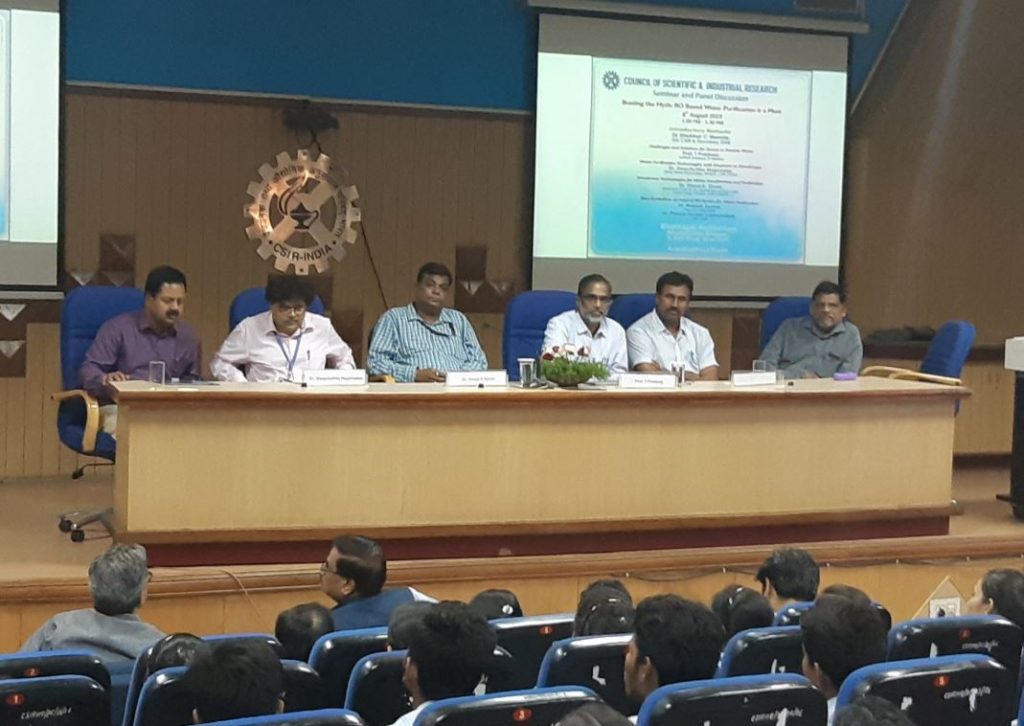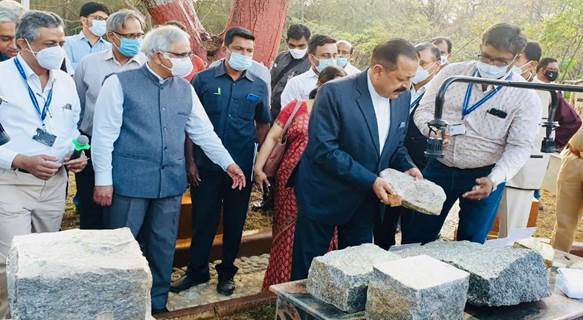Experts working in the area of water quality management have emphasized that there can be no “one size fit all” solution to tackle the problem of water contamination as the nature and extent of pollutions varied across locations.

Participating in a panel discussion organized by the Council of Scientific and Industrial Research, the experts stressed the need for proper testing of the quality of the water before taking any step for its purification to ensure selection and adoption of a technology that was most appropriate for the situation.
Dr. Pawan Kumar Labhasetwar of Nagpur-based National Environment Engineering Research Institute made a presentation on the recent directive of the National Green Tribunal regulating the use of reverse osmosis (RO) technology for water purification.
The green tribunal had asked the central government to ban its use, where the total dissolved solids in the water were less than 500 mg per liters, and ensure that water recovery was more than 60 percent and the reject water was used for washing cars and other such purposes.
In addition, NGT had urged for creating public awareness on the adverse effect of demineralization of water on the users and wanted a mechanism to make local bodies and agencies involved in the supply of water regularly generate reports on the quality of water available in their area and display them in public.
Prof. T.Pradeep, Institute Professor at Indian Institute of Technology-Madras, stressed the need to promote efforts to develop methods for easier and cost-effective measurement of water quality, and generation of potable water from newer sources including humid air.
“The world is faced with a crisis of water. The situation is particularly acute in India as it has access to only four percent of the world’s freshwater resources, even while housing 18 percent of its population. We need appropriate solutions”.
Speaking about the research being conducted in his laboratory, he said he and his colleagues have developed a technology for removing arsenic from water using nano-materials and it is being used to deliver clean water to 900,000 persons every day. “Research is on in different institutions across the country and abroad. Availability of technologies is not the limitation. There is a need for measures to take them to the market through start-up companies”, he added.
Dr. Swachchha Mazumdar of Kolkata-based Central Glass & Ceramic Research Institute and Dr. Vinod K. Shahi of Central Salt and Marine Chemicals Research Institute, Bhavnagar, spoke about the efforts being made by their institutions to develop a bouquet of water purification solutions based on ultra-violet irradiation, ozonation, gravity filtration, and other such technologies.
Setting the discussion rolling, CSIR Director-General, Shekhar C.Mande, said CSIR was committed to promoting research and development in all aspects of water management considering that water was an essential component in the social and economic development of the country. (ISW)
If you liked this article, then please subscribe to our YouTube Channel for the latest Science & Tech news. You can also find us on Twitter & Facebook.



